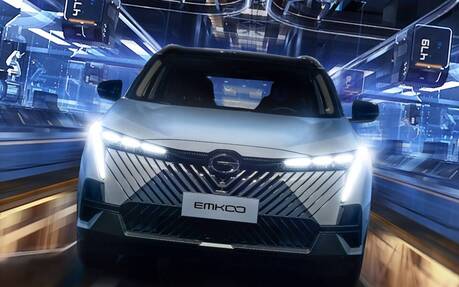Engines Running on Ammonia Could Reduce Carbon Emissions by 90%
Internal combustion engines won’t go out without a fight. Several automakers keep finding ways to make them more and more efficient and cleaner. You may have heard about synthetic fuels or perhaps hydrogen-fueled engines like the ones Toyota is testing in motorsports.
In what is described as a world first for passenger cars, Chinese state-owned manufacturer GAC has teamed up with Toyota to develop a new combustion engine that runs on ammonia. That’s right: the same ingredient that is used in many fertilizers, pesticides, explosives, plastics and all sorts of cleaning products.
- Also: Synthetic Fuels as Clean as EVs, Porsche Claims
- Also: Toyota Previews Future C-HR, Shows Hydrogen-Powered Corolla Cross
The announcement was made a few days ago during a presentation at GAC’s Tech Day 2023.
Compared with a similarly sized gasoline engine, carbon emissions are reportedly cut by 90 percent, which is remarkable. The 2.0-litre four-cylinder developed by GAC generates 161 horsepower, by the way.
Engineers had to overcome several issues, such as excess nitrogen emissions and an increase in combustion pressure compared with petrol engines.
“We’ve overcome the pain point of ammonia being difficult to burn quickly and put the fuel to use in the passenger car industry,” said Qi Hongzhong, an engineer at the GAC R&D centre in Guangzhou, China, as quoted by Autocar.
While ammonia has approximately half the energy density of gasoline, it emits no carbon or CO2 when burning. What’s more, small-scale projects using renewable energy sources have shown how carbon-free ammonia can be produced.
GAC says it’s very optimistic about the potential of ammonia engines for commercial use in the auto industry. That being said, a lot of research and development still needs to be done, and we’re only talking about the vehicles themselves. Distribution is another story, as we can see with hydrogen.
The technology may have a future in China and other markets, as well. Unless, of course, governments continue to adopt plans to ban sales of traditional ICE-powered vehicles.
